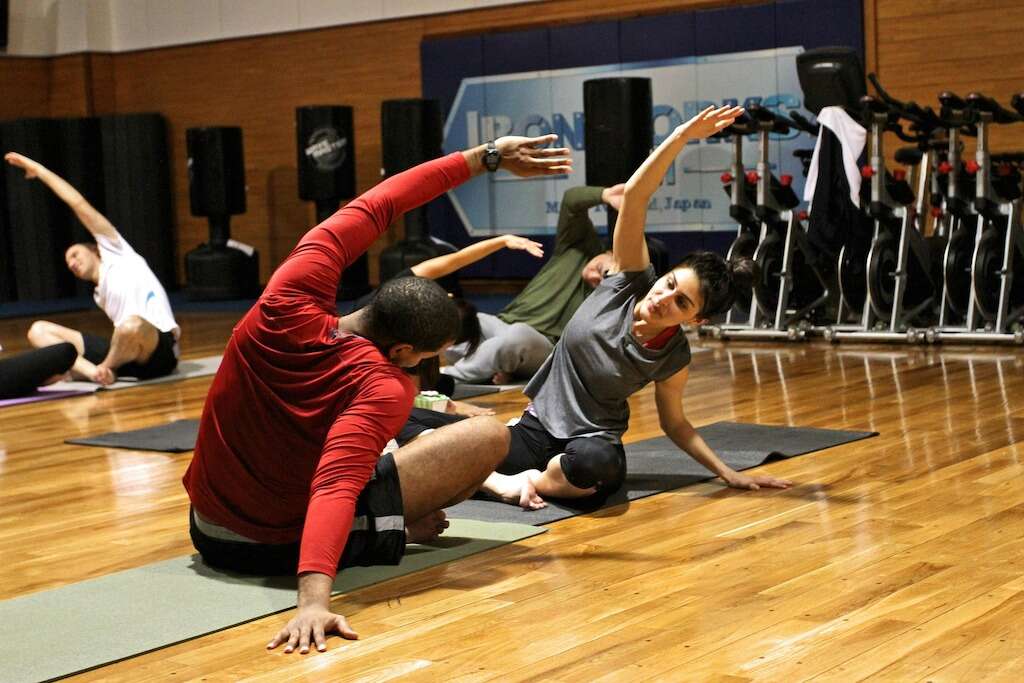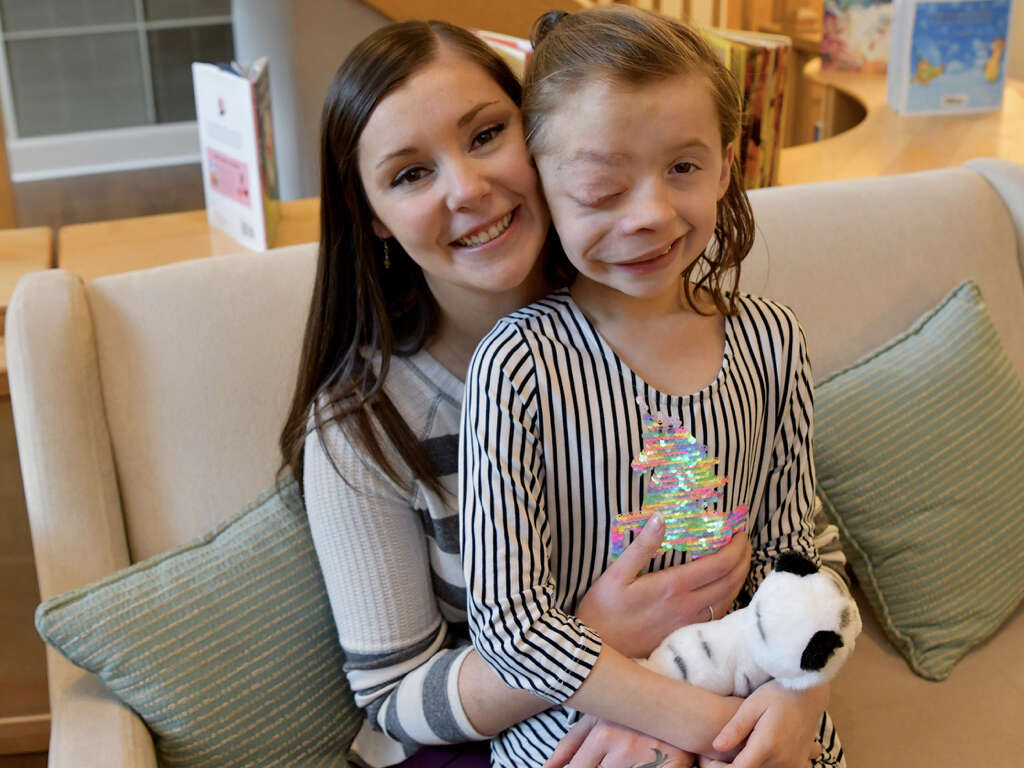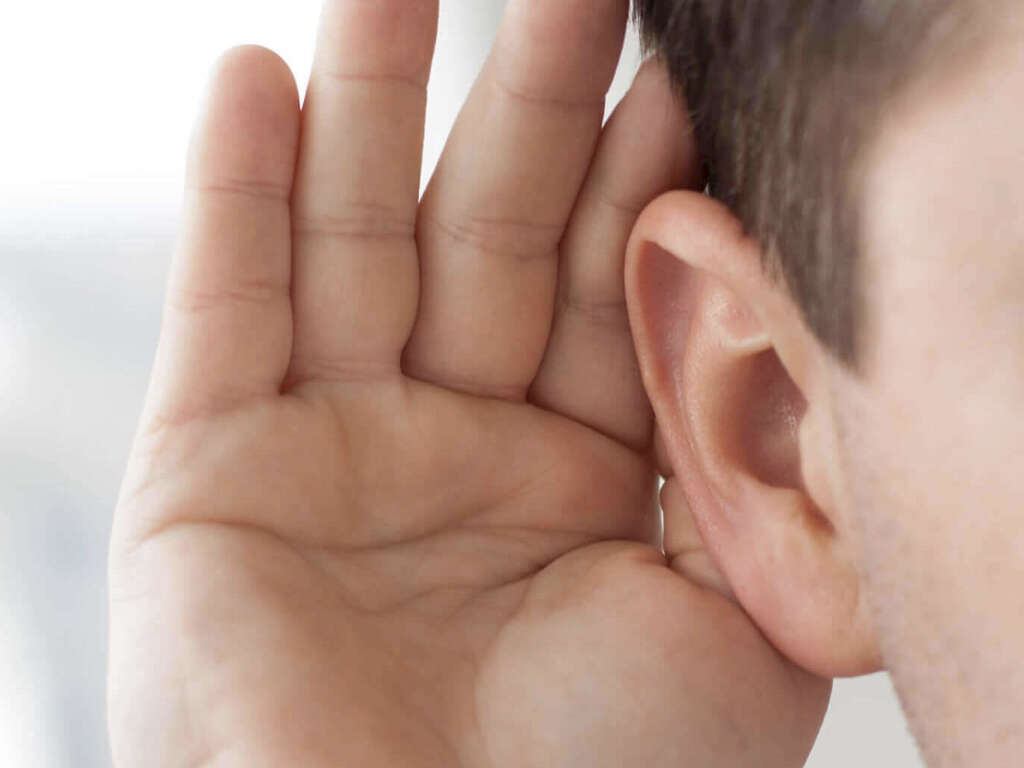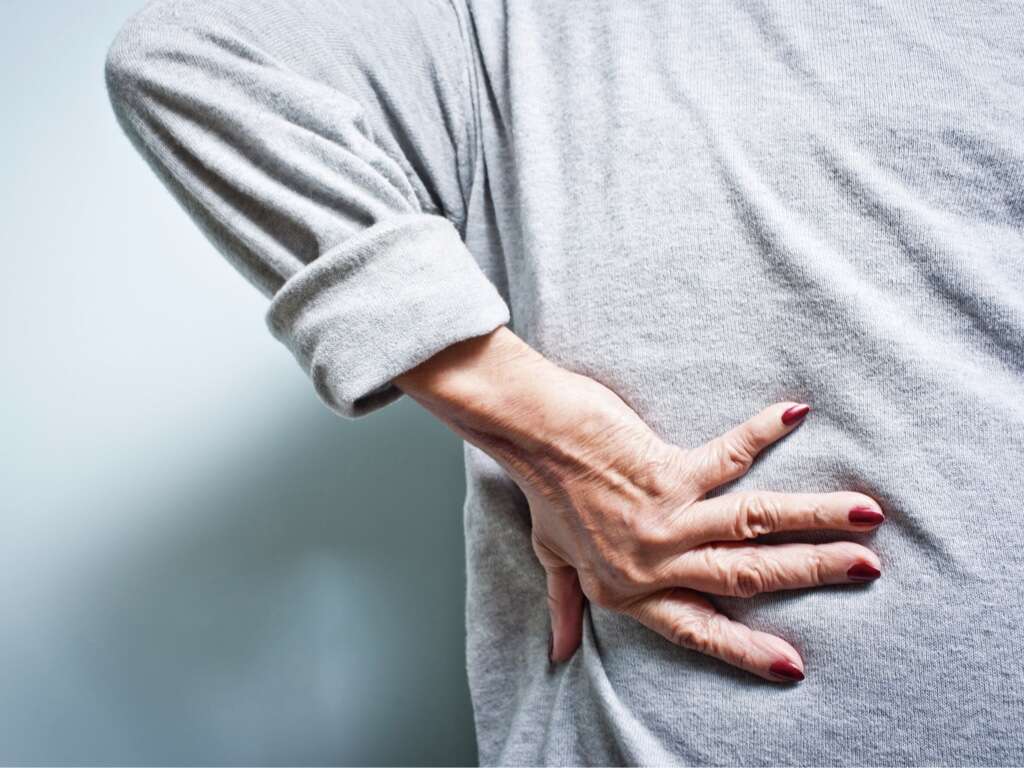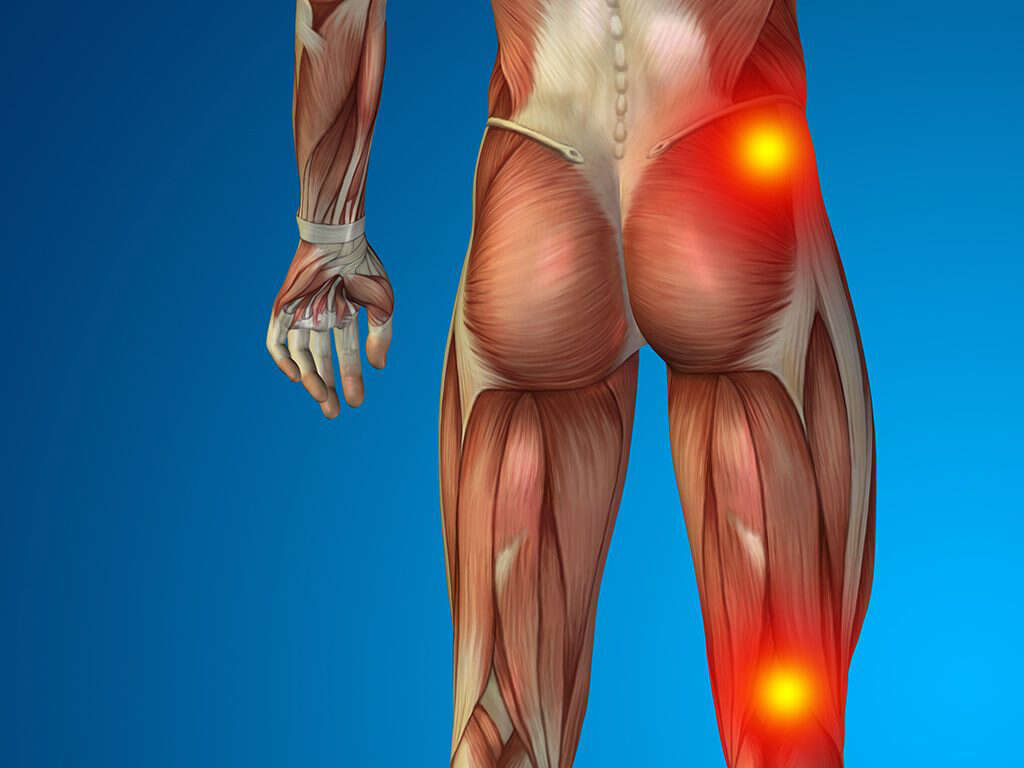Pinched Nerve Symptoms, Treatments & More
 Article Sources
Article Sources
- 1. 'Pinched Nerve.' Mayo Clinic, Mayo Foundation for Medical Education and Research, 26 Sept. 2019, www.mayoclinic.org/diseases-conditions/pinched-nerve/symptoms-causes/syc-20354746.
- 2. 'Pinched Nerves: Causes, Symptoms & Treatment.' Cleveland Clinic, my.clevelandclinic.org/health/diseases/6481-pinched-nerves.
- 3. 'Cervical Radiculopathy (Pinched Nerve) - OrthoInfo - AAOS.' OrthoInfo, American Academy of Orthopaedic Surgeons, orthoinfo.aaos.org/en/diseases--conditions/cervical-radiculopathy-pinched-nerve/.
- 4. 'Pinched Nerves: Causes, Symptoms & Treatment.' Cleveland Clinic, my.clevelandclinic.org/health/diseases/6481-pinched-nerves.
- 5. 'Pinched Nerve.' Stanford Children's Health - Lucile Packard Children's Hospital Stanford, www.stanfordchildrens.org/en/topic/default?id=pinched-nerve-134-11.
- 6. 'What Are the Symptoms of a Pinched (Compressed) Nerve?' Stanford Health Care (SHC) - Stanford Medical Center, 16 May 2019, stanfordhealthcare.org/medical-conditions/brain-and-nerves/pinched-nerves/symptoms.html.
A pinched nerve, or radiculopathy, is a common condition that affects around 85 of every 100,000 adults in the United States every year. It occurs when a nerve in the body gets compressed by bones, muscles, tendons or other tissues surrounding it.1‘Pinched Nerve.’ Mayo Clinic, Mayo Foundation for Medical Education and Research, 26 Sept. 2019, www.mayoclinic.org/diseases-conditions/pinched-nerve/symptoms-causes/syc-20354746.
Excess pressure on a nerve disrupts how it functions. That's why people with pinched nerves often experience concerning symptoms such as pain, tingling or numbness. Although a pinched nerve can be very uncomfortable, most people get better with self-care measures and time. When symptoms don't improve, it's important to see a doctor for proper diagnosis and treatment.
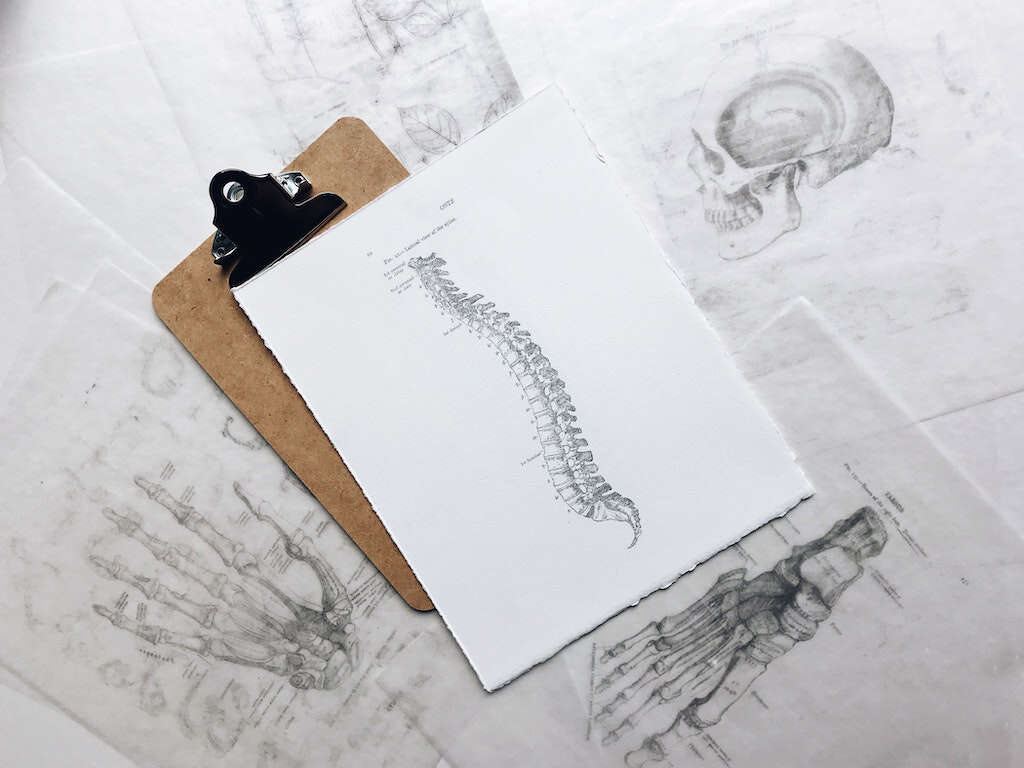
1. Anatomy of a Pinched Nerve
Pinched nerves usually originate in the neck, upper middle back or lower back.2‘Pinched Nerves: Causes, Symptoms & Treatment.’ Cleveland Clinic, my.clevelandclinic.org/health/diseases/6481-pinched-nerves. However, compression can happen anywhere along the course of nerve branches that spread throughout the body.
Oftentimes, the symptoms of a pinched nerve aren't felt at the actual spot where a nerve is compressed, but some distance away. For example, someone with a pinched nerve in their lower back might feel pins and needles in their toes. It's also common for someone with a pinched nerve in their neck to feel pain or burning that travels down the arm.

2. What Are the Symptoms of a Pinched Nerve?
Pinched nerves can affect many different areas of the body, but people most commonly experience symptoms in the neck, shoulder, back, upper chest, arm, wrist or hand. Sensations include sharp, aching or burning pain, tingling or pins and needles, numbness and muscle weakness.3‘Cervical Radiculopathy (Pinched Nerve) - OrthoInfo - AAOS.’ OrthoInfo, American Academy of Orthopaedic Surgeons, orthoinfo.aaos.org/en/diseases–conditions/cervical-radiculopathy-pinched-nerve/.
Certain movements such as turning the head, coughing or sitting may increase the discomfort. For many people, symptoms feel worse when they're lying down or trying to sleep.

3. What Causes Pinched Nerves?
Pinched nerves are often caused by herniated or slipped disks in the spine. Changes to the spine due to degenerative wear and tear are a normal part of aging, but disk damage can also occur from sports injuries, accidents, repetitive motion tasks or awkward lifting movements.
Some conditions, including thyroid disease and diabetes, make pinched nerves more likely. Rheumatoid arthritis may cause inflamed joints that put pressure on nearby nerves. Pregnancy and obesity can also cause swelling in nerve pathways resulting in compressed nerves.4‘Pinched Nerves: Causes, Symptoms & Treatment.’ Cleveland Clinic, my.clevelandclinic.org/health/diseases/6481-pinched-nerves.
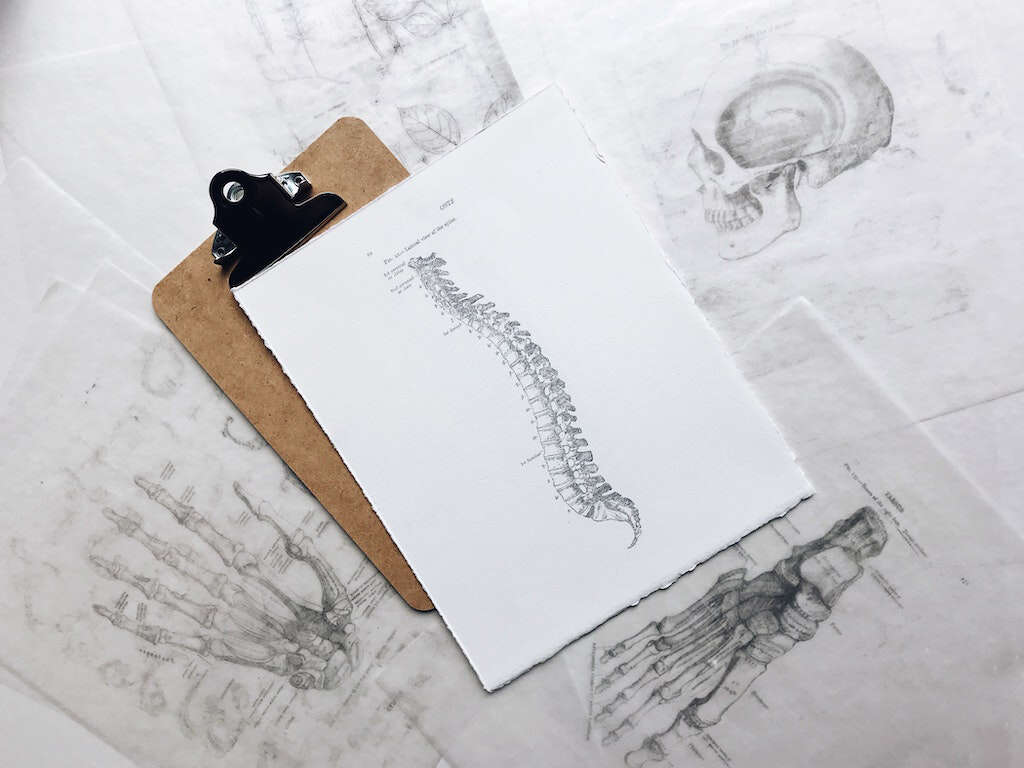
4. At-Home Relief for a Pinched Nerve
To treat a pinched nerve at home, it's advisable to rest and stop activities that aggravate symptoms. Depending on the location of the affected area, a soft neck collar or hand splint may help limit motion and assist with healing. People with carpal tunnel, for example, may wear a splint to keep their wrist from flexing and extending, especially at night.
Other self-care measures can include taking over-the-counter pain relievers, such as acetaminophen, ibuprofen or naproxen. Applying ice or heat may also provide temporary relief.

5. When You Should See a Doctor
Many people with pinched nerves feel better after using at-home treatments and with time. However, if symptoms last for several days or don't respond to self-care measures, visiting a doctor for further evaluation and guidance may be required.
Although it's uncommon, a pinched nerve can lead to chronic pain and permanent nerve damage. It's important to seek medical attention right away if symptoms are accompanied by the sudden onset of numbness, weakness, paralysis or a loss of bladder or bowel control.5‘Pinched Nerve.’ Stanford Children’s Health - Lucile Packard Children’s Hospital Stanford, www.stanfordchildrens.org/en/topic/default?id=pinched-nerve-134-11.

6. How Is a Pinched Nerve Diagnosed?
Diagnosis of a pinched nerve usually begins with a physical exam of the neck, arms, shoulders, wrists and hands to check for muscle weakness or a change in reflexes. Further testing is sometimes required.
An X-ray, CT scan or MRI can show changes in the spine or soft tissues. An electromyography (EMG) or nerve conduction test may also be used to determine if a nerve is functioning properly. These tests help doctors understand if symptoms are caused by pressure on the nerves or another condition.
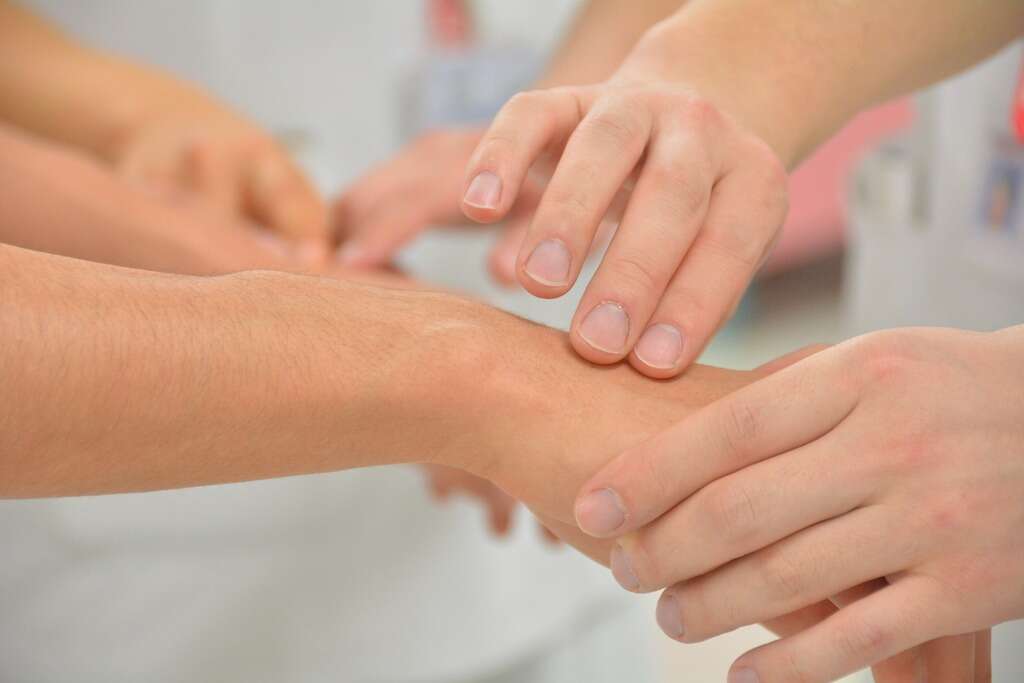
7. Medical Treatments for a Pinched Nerve
In some cases, doctors prescribe medications such as oral corticosteroids to help reduce inflammation. More often, steroids are injected near the affected nerve to reduce local swelling and pain long enough for the nerve to heal.
Other early treatments include physical therapy or at-home exercises to strengthen and stretch the back and neck muscles and relieve pressure on the nerves. Muscle relaxants and narcotic medicines are typically reserved for people with more severe, long-term pain that's not relieved by other types of treatment.

8. Surgery for a Pinched Nerve
For most people, pinched nerve symptoms resolve within four to six weeks. If a pinched nerve doesn't improve after a few months of traditional treatment, a doctor may recommend surgery as a last resort.
Surgical treatment aims to relieve painful symptoms by taking pressure off of the nerve. The most common surgery involves removing pieces of bone or soft tissue to create more space for the nerve.6‘What Are the Symptoms of a Pinched (Compressed) Nerve?’ Stanford Health Care (SHC) - Stanford Medical Center, 16 May 2019, stanfordhealthcare.org/medical-conditions/brain-and-nerves/pinched-nerves/symptoms.html. The surgical procedure a doctor may recommend depends on the type and location of the problem.

9. What Is the Outlook for a Pinched Nerve?
A pinched nerve can be painful and uncomfortable, but it's usually treatable with rest, medication, physical therapy and time. Most people recover fully, however, it's also common for a pinched nerve issue that has improved to return in the future.
For those who undergo surgery for a pinched nerve, a complete recovery of strength, motion and activity usually occurs in three to four months. Most people are able to resume day-to-day activities, such as driving or desk work, within a few days or weeks.

10. How Can You Prevent Pinched Nerves?
Sometimes, pinched nerves can't be prevented. However, the risk can be lowered. Proper posture and not remaining in any one position for too long is helpful. Stretching exercises before and after workouts can help prevent pinched nerves and sport injuries.
For those who spend extended hours at a desk, avoid sitting with crossed legs and be sure to get up and walk around regularly. Try to limit or take breaks from repetitive motions such as lifting or typing. Most importantly, maintain a healthy weight and lifestyle to keep muscles strong and flexible.
